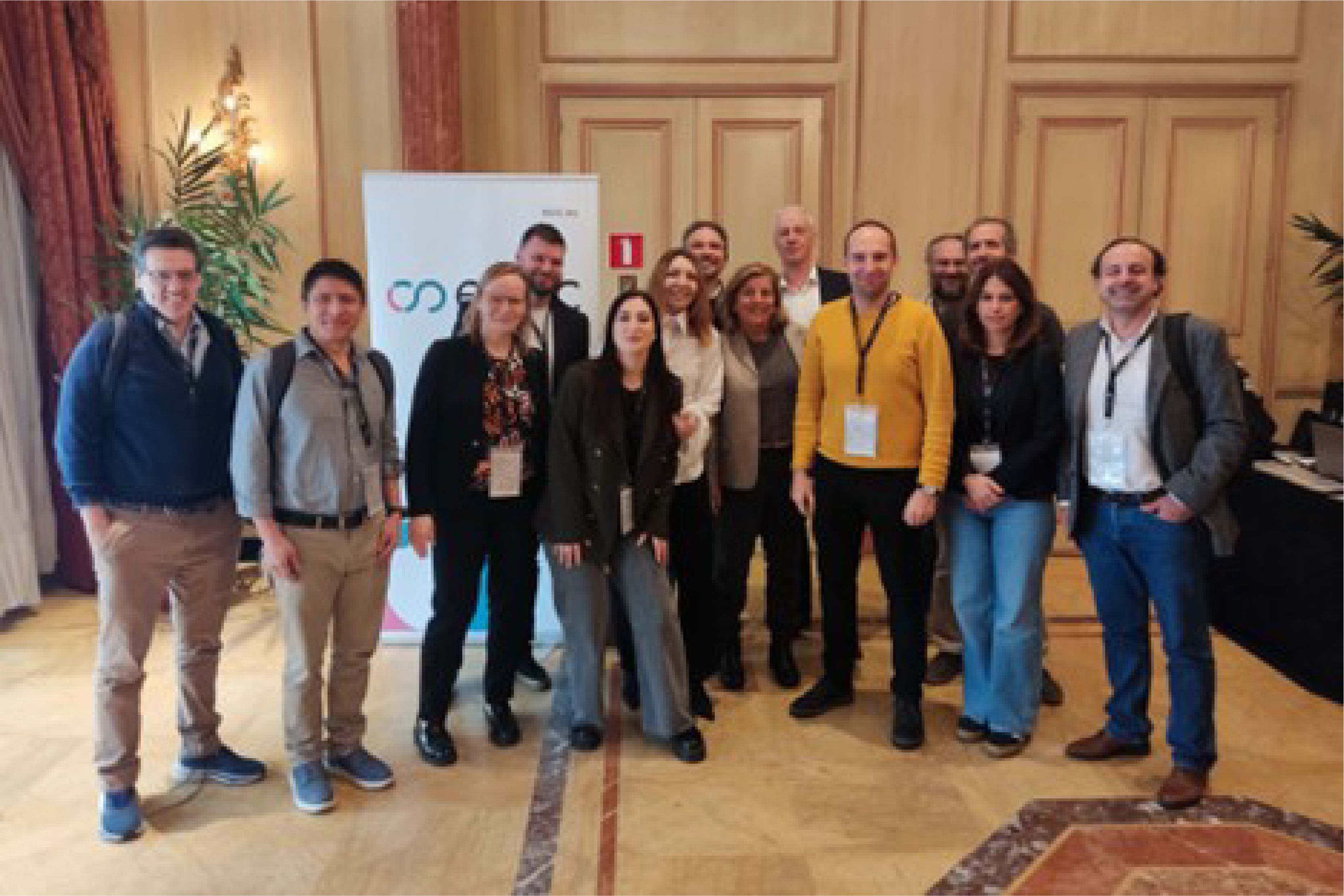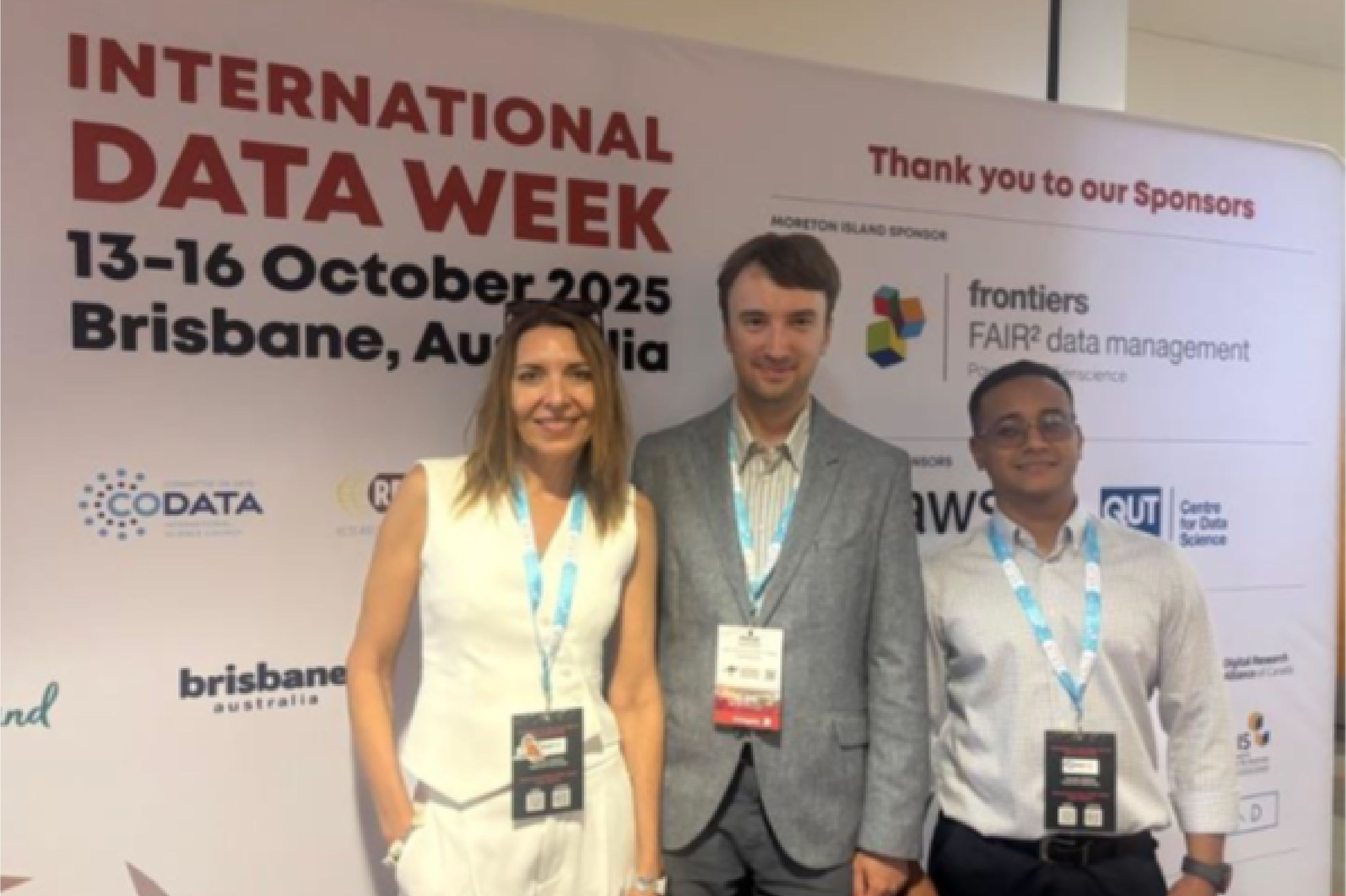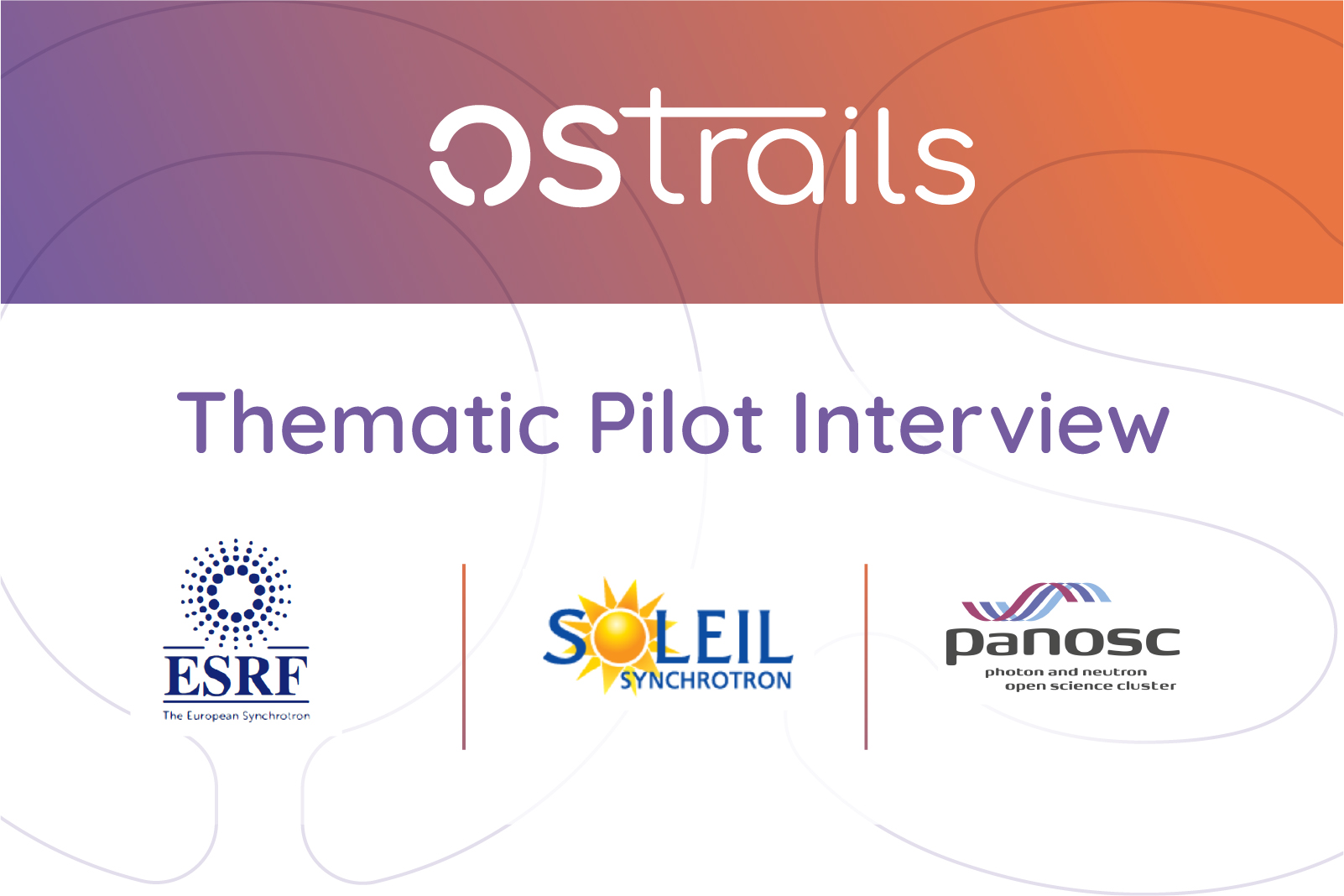OSTrails at Open Repositories 2025: Bridging Research Workflows with Interoperability APIs
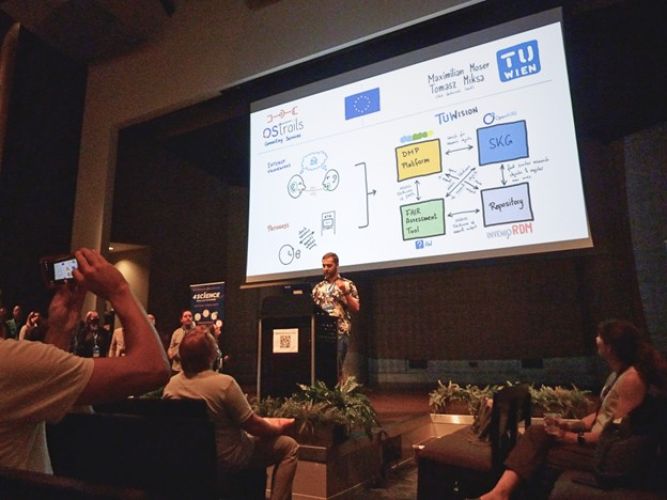
At Open Repositories 2025, held from June 15th to 18th in Chicago, Illinois, Maximilian Moser (TU Wien) presented OSTrails and its ongoing work to make FAIR and reproducible science more interoperable across research services. Under the conference theme “Twenty Years of Progress, a Future of Possibilities”, the OSTrails poster highlighted the project's efforts to connect isolated systems into cohesive workflows that reduce researcher workload and support long-term sustainability.
“OSTrails is making it easier for different research services to work together by providing standardised APIs. This reduces manual effort for researchers and helps repository teams build more sustainable, vendor-neutral infrastructures.”
- Maximilian Moser, TU Wien, at OR2025
The Poster at a Glance
TU Wien, the technical lead for OSTrails and one of the project's 24 national and thematic pilot institutions, showcased a poster titled “TU Wien & OSTrails: Connecting services”. It focused on how service-agnostic APIs and interoperability specifications developed within the project are enabling more seamless interactions between tools for Data Management Plans (DMPs), Scientific Knowledge Graphs (SKGs), and FAIR assessment.
The poster featured a working pilot: an integration between TU Wien’s InvenioRDM-based research data repository (TUWRD) with the DAMAP Data Management Planning tool, implemented as part of the OSTrails Austrian pilot. This allows researchers to report dataset reuse in their DMPs directly from the repository interface, replacing a previously manual and fragmented workflow.
A limited proof of concept for integration between a DMP platform and a research data repository has already been presented at OR2023 and completed at TU Wien in 2024. Similar tests are now scaled across different services and research settings to achieve more standardized proof of concepts across the project’s pilots.
Why It Matters
The OSTrails Interoperability Frameworks aim to overcome fragmentation by defining modular, vendor-neutral APIs that can be implemented across various platforms. This approach:
- Simplifies how researchers interact with multiple tools
- Reduces reliance on specific service providers
- Supports a more sustainable and collaborative infrastructure ecosystem
Infrastructure providers and developers can reuse these standardised building blocks. This lowers integration costs and improves metadata quality, traceability, and FAIRness.
Audience Engagement
The poster was designed to engage both repository managers and developers. The presentation aligned particularly well with the OR2025 sub-themes of “Sustainability and Preservation” and “Community”, highlighting how open and flexible technical approaches can foster inclusive, future-ready research infrastructure.
Visitors particularly appreciated the connected services (DMP Platform, SKGs, FAIR Assessment Tool) and were interested in future use-cases pertaining to their own repositories. Moreover, they enjoyed Maximilian’s tablet-drawn illustrations on the poster!
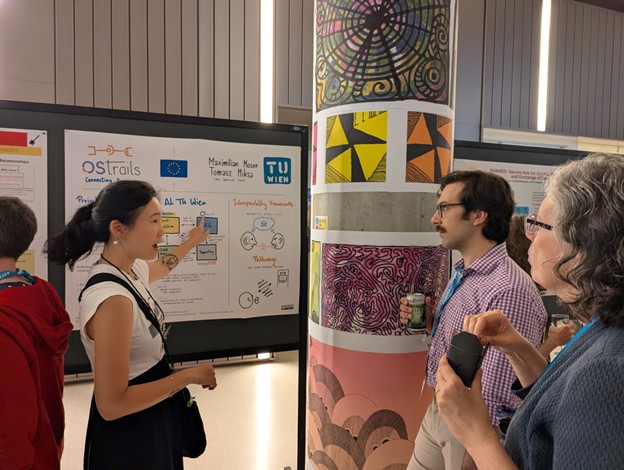 Visitors engage with the poster as Suvini Lai (TU Wien) offers project specific insights. Photo by Maximilian Moser.
Visitors engage with the poster as Suvini Lai (TU Wien) offers project specific insights. Photo by Maximilian Moser.
Looking Ahead
OSTrails offers practical, standards-based solutions to long-standing interoperability challenges, helping to turn open science principles into everyday practice. Rather than creating new platforms, it builds bridges between existing ones, empowering institutions to incrementally improve their workflows.
Once the OSTrails interoperability framework is finalised, the Austrian OSTrails pilot will implement it in its participating institutions.
- Written by Suvini Lai (TU Wien)
More about OSTrails pilots
InvenioRDM | Damap DMP Tool
Integration preview on Zenodo

